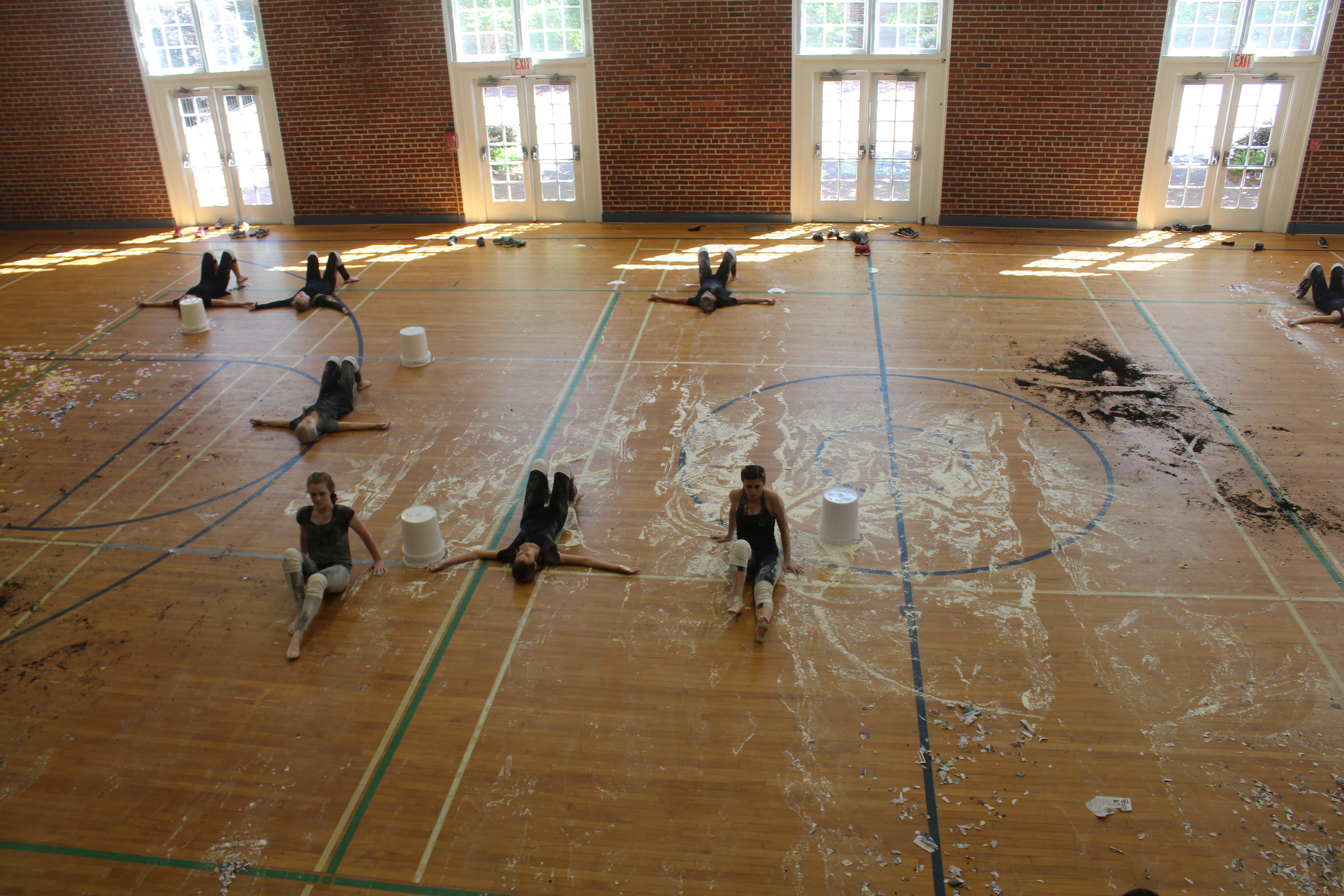The gym is silent, and every other dancer is outside. I am sitting in a pool of my own sweat, hair plastered to the side of my face, kneepads sliding down my legs, literally wheezing from exhaustion. There are upwards of 400 pairs of eyes staring at one person: me.
This is not what I expected my final Governor’s School performance to be like. As a dancer, you are expected to play a role. When you’re on stage, you don’t sweat, you don’t breathe too heavily, you don’t fix your hair and you definitely don’t move unless it’s choreographed.
All of my prior performances had been safe. I had never opened myself up to an audience to an extent past that of “the performer,” the perfect entity of high kicks and elegant turns and perfectly placed facials to demonstrate the emotion of the piece. This was the first and only time that I’ve ever let myself be vulnerable in a performance setting: exhausted, imperfect and okay with it.
North Carolina Governor’s School West (GSW) taught me a consistent lesson in vulnerability. The first day of my Area III class, I was blindfolded. It was my third day on campus and I hadn’t even gotten a chance to meet my teacher before I was blindly led into a classroom, placed at a desk and asked to answer various personal questions about myself. I had no idea who I was sharing my religious views with. I couldn’t see the people I was telling the details of my personal life to, and I didn’t even really meet them until our next class.
Later in the session, I had to write down my biggest secret and submit it to my instructor. Knowing how recognizable handwriting can be, I felt inclined to make something up. I didn’t, and the next day, we had to anonymously read them all out as a class.
My whole experience was anything but comfortable, and honestly, when it first started, I was counting down the days until I would get to go home. Everything at Governor’s School was a little bit like that first blindfolded day. But I grew accustomed to the unfamiliarity. I became okay with the knowledge that I’d probably be thrown into another crazy situation by the end of the day. I stopped trying to prepare myself for what might be happening, and let myself start responding openly and honestly to whatever GSW threw my way.
Toward the end of Governor’s School, the dancers played a trust fall game. Everyone stood in a tight circle, and you had to let yourself fall into the sides, knowing (or hoping) that those around you would catch you and push you back up to fall to another part of the circle. It couldn’t be that easy, of course: you had to fall with your eyes closed and the people around you couldn’t catch you with their hands.
I’ll never forget stepping into that circle and falling without hesitation. It turned into a beautiful collision of bodies, my classmates catching me with their knees, chests and backs. The flow of the circle became effortless. They were learning how best to support my weight and I was just along for the ride, placing my complete trust in their ability to stop me from falling. I had no fear.
By this time, I had completed my last performance, and in this final activity, I felt the same sense of openness that I’d felt sitting, a sweaty mess, in front of that audience. It was a physical manifestation of the way I was allowing myself to fall into the arms and minds of those around me. It was me, wholly me, without hesitation.
I had accepted this sense of vulnerability, and it’s something that I still carry with me. I’m trying to be honest and open with those around me. I’m trying to be myself in every sense of the word—unapologetically, flaws included. Besides, my dance instructor, Sara Tourek, liked to tell us that in life and in dance, we couldn’t be anything but ourselves: completely human, along with all of the perspiration that comes with it.
– By Sara Heilman


